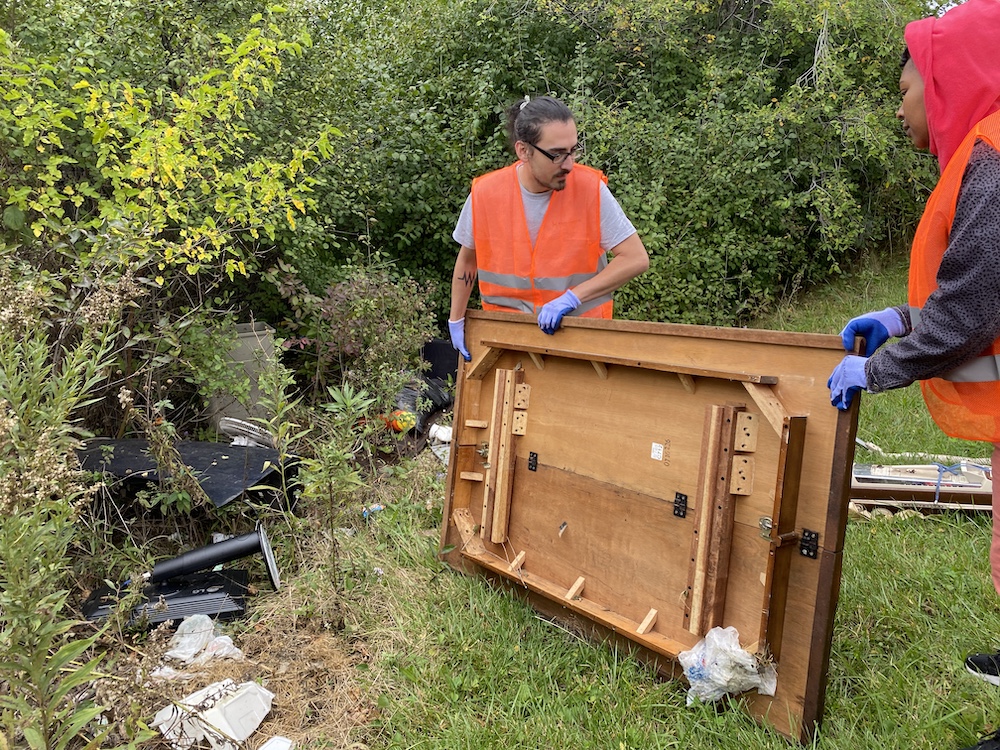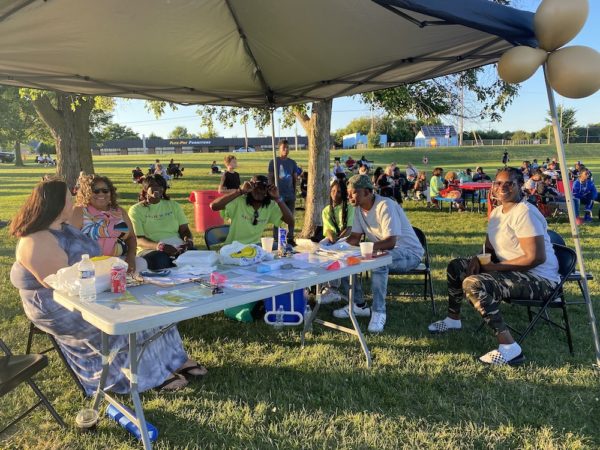
This article appears as part of This Week in Milwaukee Rising, a weekly newsletter from Technical.ly highlighting the innovators bringing a more just, equitable and dynamic Milwaukee economy. Subscribe here. The series is underwritten by American Family Insurance Institute for Corporate and Social Impact.
The Havenwoods State Forest features 237 acres of woods, wetlands and prairies, including over six miles of trails. The site was once home to a prison correctional facility, and later, an Army barracks. By the mid-1970s, the area was all but abandoned leaving behind an “inviting, but very dangerous, unsupervised playground,” filled with vacant prison buildings, underground tunnels — even a missile site.
Over the decades, the site became somewhat of a dumping ground, bringing blight to the property and dimming the pride of its surrounding residents. But by 1980, the land was reclaimed by a passionate group of city planners and volunteers and turned into a state forest.
“It’s so beautiful,” said Katlin Hahn, a resident engagement manager at Havenwoods Neighborhood Partnership, a nonprofit overseeing economic and neighborhood revitalization efforts within the Havenwoods community. “It’s this great little pocket of nature. I try to share it with people as much as possible.”
Today, the forest has become a breath of fresh air to the diverse neighborhood — and a bright spot of opportunity for residents looking for a fresh start.

Havenwoods free books. (Courtesy photo)
Formerly known as the Havenwoods Economic Corporation, the Havenwoods Neighborhood Partnership is dedicated to sustaining the economic health of the Havenwoods community. In 2003, it helped launch the Havenwoods Business Improvement District to attract and market the neighborhood’s industrial and retail corridor; today the area counts more than 230 businesses in its district, which employ nearly 3,500 individuals. Under the Havenwoods Neighborhood Partnership umbrella, the BID works alongside businesses and residents to increase access to community resources and execute a growing range of revitalization projects.
Sometimes that means building from scratch.
Last year, the Havenwoods Neighborhood Partnership launched Street Keepers, a transitional jobs program to tackle the prevalence of unemployed or under-employed workers in the area. The program is aimed at adults who are currently living through a “transitional phase of their life”: those who have left or dropped out of school, become a new parent, exited the criminal justice system, or have experienced personal challenges that have left them unable to secure gainful employment, Hahn told Technical.ly. (In that way, it reminds of Milwaukee startup The Way Out that’s working to break the cycle of incarceration through career opportunities, or the West Philadelphia Skills Initiative focused on training Philly residents for in-demand local roles.)
The program is rooted in building foundational skills to help participants close employment gaps — and grow their personal and professional development from the “ground up.” Street Keepers’ participants learn interviewing skills, receive resume writing assistance, and work in paid part-time roles under the six-month program.
“Unfortunately, jobs are not always easy to come by,” said Hahn, who spearheads the Street Keepers program. “A lot of our businesses may be hiring, but they have [higher] standards for hiring. Some of our work is just showing people they are qualified for these positions and giving them access in the right way.”
Street Keepers participants work up to 29 hours a week and earn $16 per hour, far above the minimum wage, Hahn said. Recently, Street Keepers crew members passed out free meals at Kaul Tot Lot, assisted with Buckthorn removal in the Havenwoods State Forest to rid the area of the invasive species, introduced local children to turtles and snakes, and helped plan an upcoming community Halloween event and coat drive.
Keeping residents who participate in Street Keepers actively engaged and invested in the Havenwoods neighborhood is key to the success of the program. But the best part is seeing people benefit from a major boost in confidence, Hahn said. There are no education or work requirements to contend with. The only requirement to be a part of the program is a willingness to grow.

Havenwoods litter cleanup. (Courtesy photo)
Promoting the benefits of and access to nature also plays a role.
“They are going out and talking to residents and they become as much representation for the organization as me,” she said. “Red flags are my game. We see them and we like to bring people in. We find that giving back to the community feels really good for people.”
After a year of learning and evolving the Street Keepers program, Hahn said she is already seeing success stories come to light. She is reminded of one crew member, Georgette, who first contacted her through a timid email asking for a job opportunity following a long stint of unemployment.
In the beginning, Georgette was unsure of herself and was only looking for “assembly work,” and little personal interaction. By the end of the Street Keepers cohort, she was leading teams and had earned her high school diploma. On the day of Technical.ly’s conversation with Hahn, Georgette was wrapping up a staff orientation at a local grocery store, where she was preparing to start in a new full-time manager role.
It’s stories like that that keep Hahn motivated in her work. So far, she said Street Keepers has graduated eight local residents from the program with more than six moving into full-time employment outside of the organization, she added.
“My vision is for more people to be able to leave our program with the confidence to accomplish that next step in their lives,” Hahn said. “I want them to go into a full-time job, buy a house, and invest in our neighborhood. That would be huge.”
Subscribe to This Week in Milwaukee Rising:
Join the conversation!
Find news, events, jobs and people who share your interests on Technical.ly's open community Slack

Philly daily roundup: Student-made college cost app; Central High is robotics world champ; Internet subsidy expiration looms

Delaware daily roundup: Early-stage loan help; Jobless rate drops below 4%; $700k grant for industrial park

Philly daily roundup: Earth Day glossary; Gen AI's energy cost; Biotech incubator in Horsham


